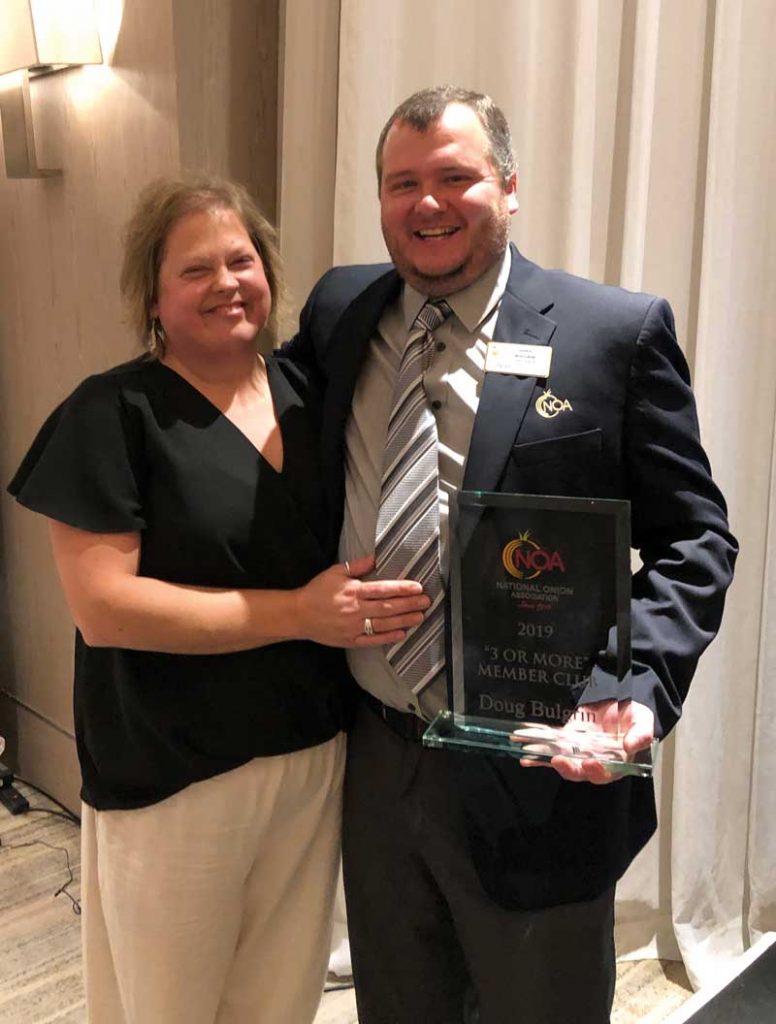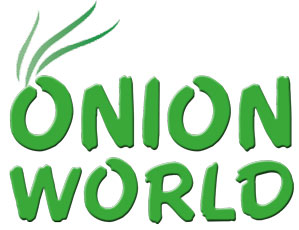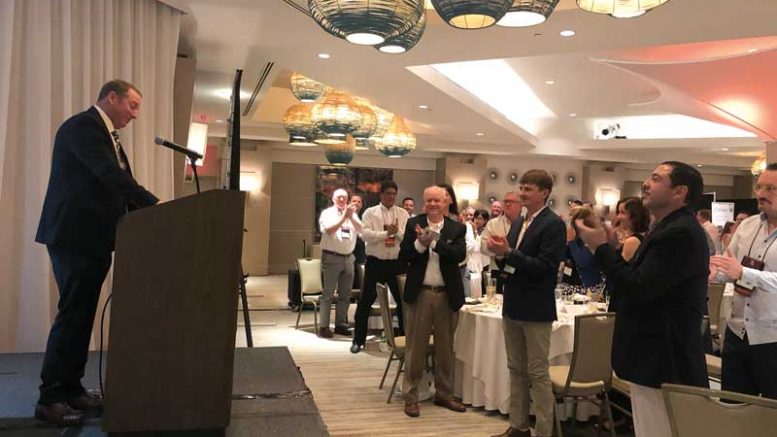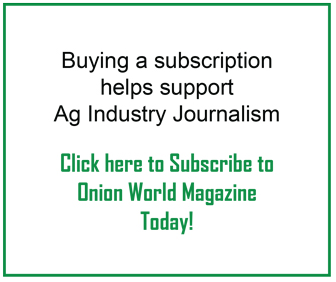Story and photos by Sharon Dunn
Attendees of the National Onion Association (NOA) annual convention in Naples, Florida, got another taste of Washington, and that’s by design.
NOA Executive Vice President Greg Yielding has vowed to keep the association’s mission in politics top of mind. Knowing that not everyone can break from their daily grind to visit policymakers on their turf, he decided to keep the dialogue alive by bringing Washington to them.

photo props.
Roughly 150 NOA members attended the association’s annual convention Dec. 4-7 at the Naples Grande Beach Resort. They were treated to an African safari tour of the NGALA Wildlife Preserve and a nursery tour of American Farms, as well as a workshop on how to dye fabrics with onion skins.
The agenda also included a session on the USDA GAP program with Jeffrey Davis, business development specialist with the USDA, and Jennifer Dougherty, GAP team lead. Davis talked to the group about the USDA Good Agricultural Practices audit services, emphasizing that his office works for the group and growers should make use of what his office offers.
A heavy emphasis throughout the convention was placed on the NOA’s Nature’s Ninja program. Members received lapel pins and ninja onion dolls and were given ideas of how to use the Nature’s Ninja in their marketing.
NOA member John Harris, CEO of Paradigm Fresh in Fort Morgan, Colorado, kick-started the Nature’s Ninja program by creating new wineglass labels with the ninja character, and shipped in bagged onions with the labels to be used as centerpieces during the convention. Harris encouraged others to get involved for a combined effort to increase onion consumption throughout the country. NOA leadership will soon get together to discuss parameters of the shared use of the Nature’s Ninja marketing materials among the membership.
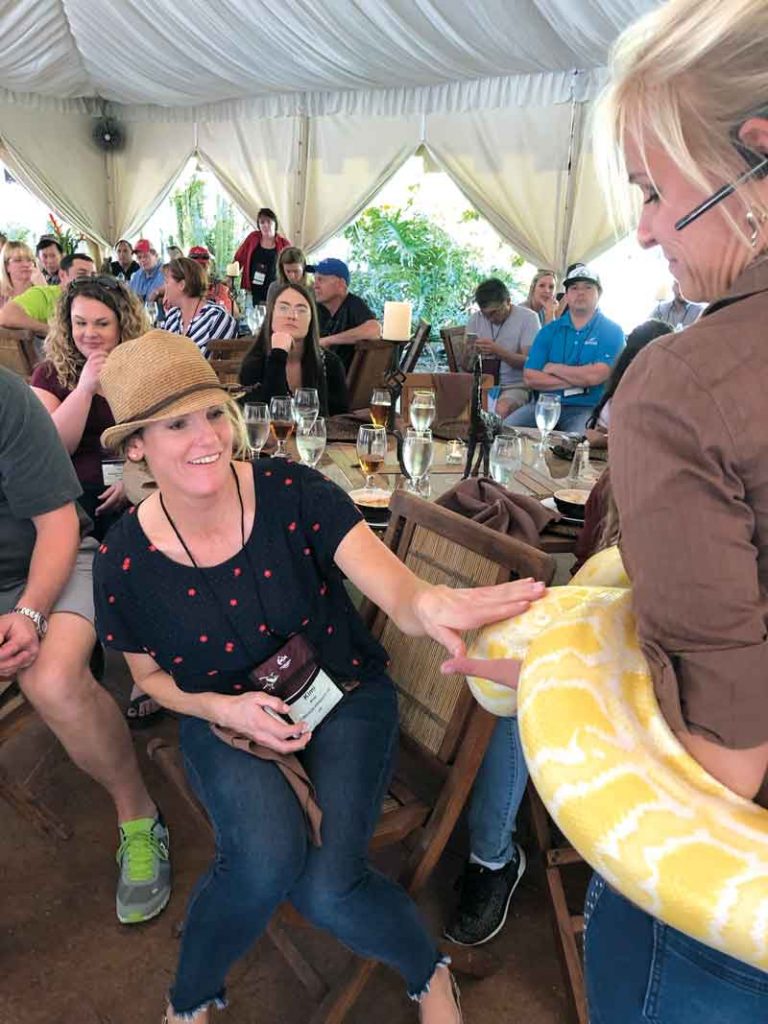
Two-Way Street
For decades, the NOA has conducted an annual trip to Washington D.C., bringing chiefly NOA leadership to discuss relevant issues with key legislators and policymakers. But putting more emphasis on bringing Washington to the NOA conventions is part of a concerted effort to reinforce the message that America’s onion growers will not piggyback or take a backseat to other, much larger lobbying groups.
“The onion industry can’t afford to let others do our business for us because they’re not going to,” Yielding said. “Only onion people are going to represent the onion industry effectively.
The plan going forward is to have at least one regulatory agent in our conventions.”
Doug Bulgrin, NOA’s incoming president and onion sales manager for Gumz Farms in Endeavor, Wisconsin, said the idea is to not only put onion industry folk in front of their lawmakers and policymakers, but to show those in Washington the faces of the onion industry.
“It’s a great idea from the grower side to meet the politicians and understand who they’re talking with, and on the other hand for politicians to meet some growers and learn a little about them and how they operate. There are definitely positives in both directions,” Bulgrin said.
“We need people to understand that farmers aren’t the bad guys, we’re not out there polluting the land or spraying pesticides just to spray them,” Bulgrin added. “We’re not the big bad wolf. We want to be good stewards of the land. Bringing policymakers to the membership bridges a serious gap. We could try and pay a lobbyist and do things just individually. We have much more power as an organization.”
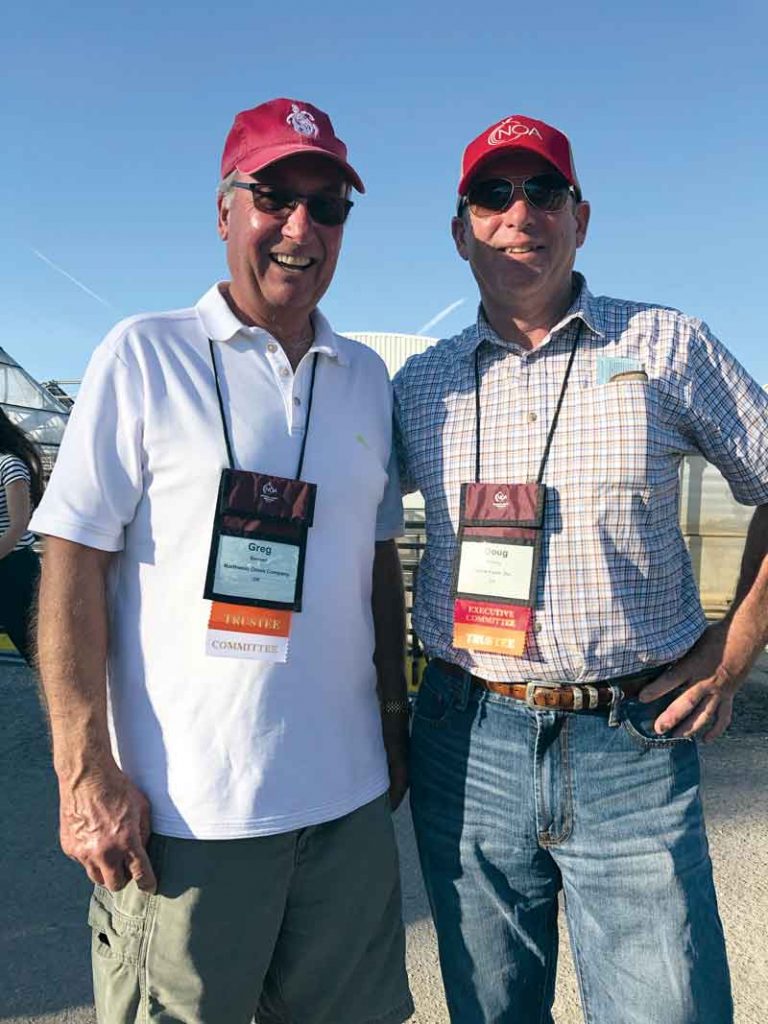
Lines of Communication
At present, there’s a wealth of issues that onion industry folk are concerned with, from pesticide regulation to farm labor and immigration reform to transportation, to name a few.
Last summer, at the NOA’s summer convention in Madison, Wisconsin, a USDA speaker covered concerns of the Allium leafminer’s increased presence in America. The speaker focused on how the federal government’s rules on creating quarantines for invasive species work, and how growers could work with their own state governments to guard against the potential invasion of the bug in their states.
“I did find them helpful,” said Colorado onion grower Robert Sakata, who sat in on that USDA discussion at the convention. “I think it’s important that we still travel to Washington, too. [The more] we can interact with them, the better. The convention probably provided me more information so when I go to Washington, I can speak about the issues.”
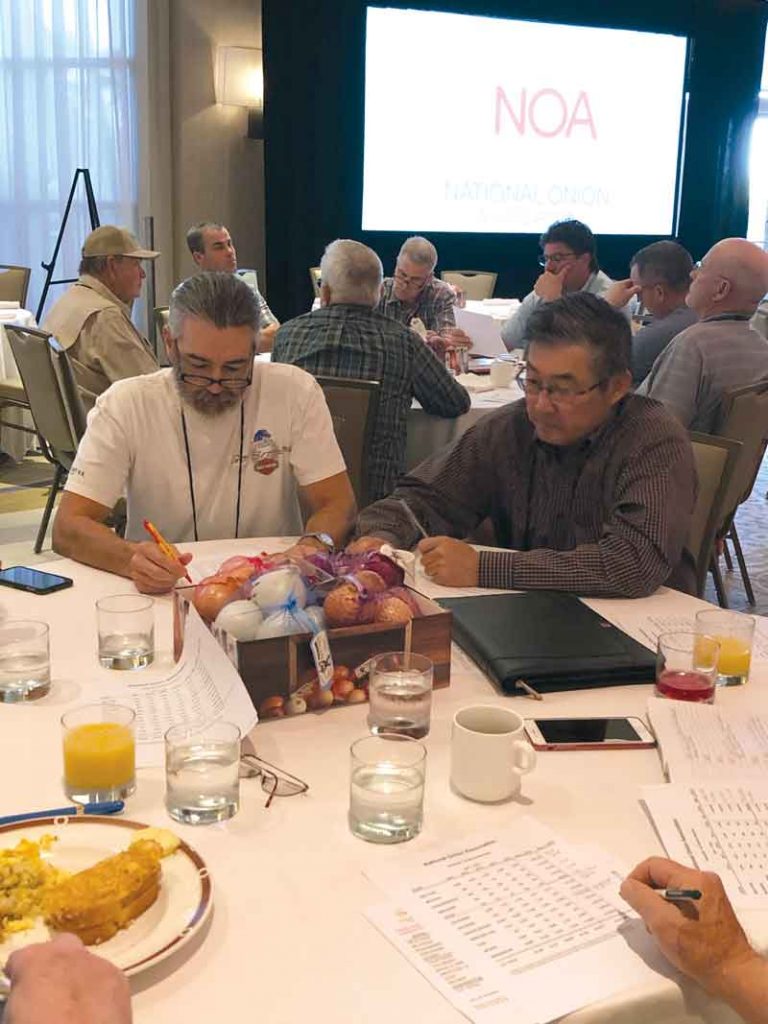
Kay Riley of Snake River Produce in Nyssa, Oregon, and a past NOA president who continues to be involved politically and makes those annual NOA trips to Washington, agreed it was helpful to have that government presence at meetings, but he warned against having them there without an issue specific to the entire onion industry.
“Our political efforts have been of great value,” Riley said. “I’m all in if we’re doing something that’s worthwhile. [Yielding is] trying to make it something that’s new and fresh, and I appreciate all of that.”
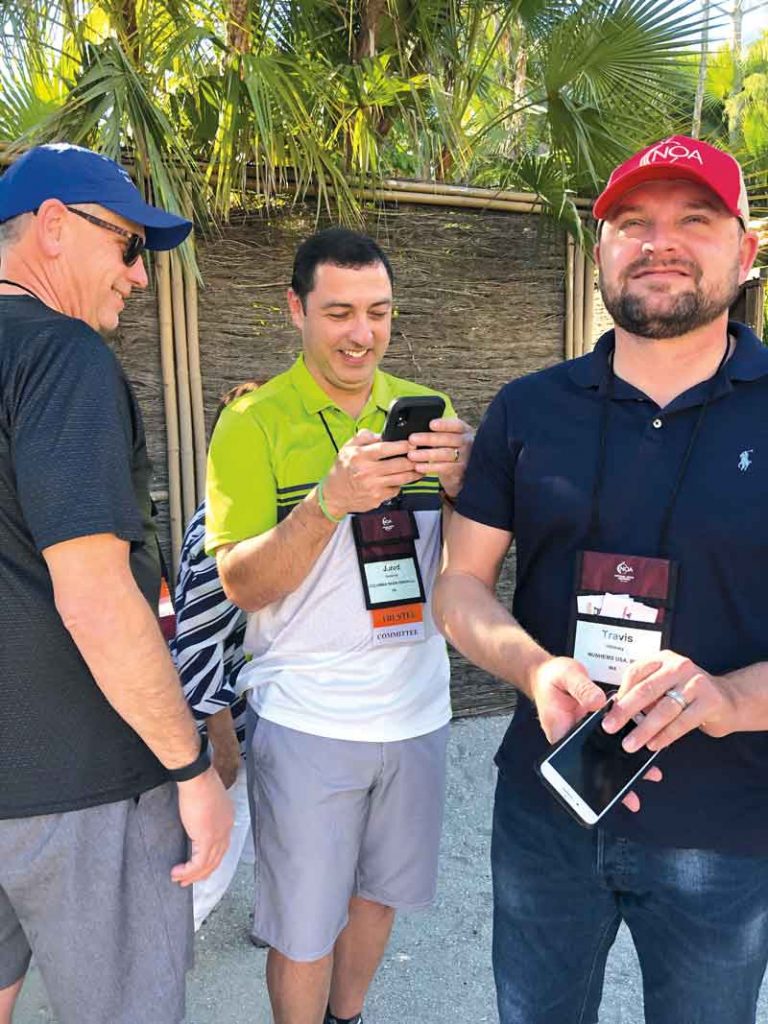
It’s almost a given today that there are fewer farmers in America. It stands to reason that with fewer farmers, there are fewer people in Washington who understand how the policies and rules they make affect the boots-on-the-ground operations.
“I think it’s important for the association to have a presence and really voice the concerns of the membership,” Sakata said. “Not everyone can go to D.C. So I think it’s great if policymakers can come to the event and see everyone. It’s a great opportunity.”
Yielding said he welcomes any ideas of policymakers to bring to conventions to help inform the entire membership.
“Part of what the association needs to be doing is reaching to their elected government officials and regulatory officials,” Yielding said. “We’ve got to keep abreast of everything that’s going on, and we have to have them at the conventions to have a direct connection to what’s going on.”
But not all of the NOA’s membership attends conventions, and that has to change, Bulgrin said, especially if people want to use that time to inform themselves about the issues the NOA is facing, and consequently, get to know the policymakers whose decisions affect the industry.
“I think a lot of people who aren’t members do not realize they’re riding on the coattails of what NOA is doing for them, whether it’s in the food safety realm, or the fight for irrigation water, or the leafminer,” Bulgrin said. “People would be surprised to see how much effort we are putting into it.”
